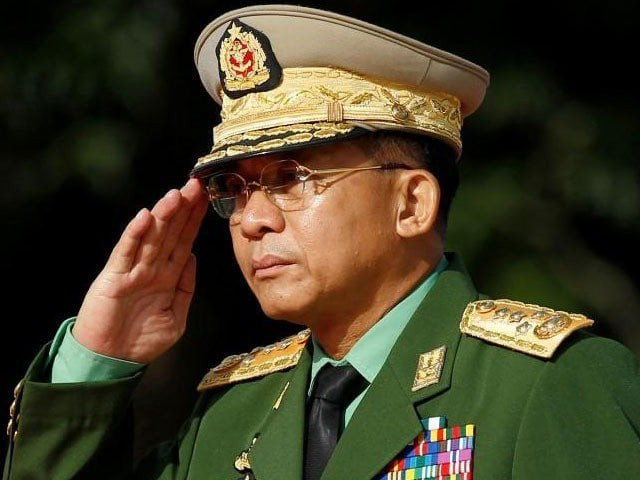Myanmar army probing alleged Rakhine atrocities
In the last seven weeks more than half a million Rohingya fled Rakhine for Bangladesh

The army was widely loathed by the Burmese people during its ruthless reign, a tenure marked by countless allegations of rights abuses and total impunity for soldiers. PHOTO: REUTERS
In the last seven weeks, more than half a million Rohingya have fled Rakhine for Bangladesh, shocking the globe with accounts of Myanmar soldiers and Buddhist mobs murdering and raping civilians before torching their villages to the ground.
The army has steadfastly denied the charges and insists it is targeting Rohingya militants who attacked police posts on August 25, killing around a dozen security officers.
It has also blocked independent access to the conflict zone, triggering condemnation from the UN, which has accused the army of leading a systematic campaign to expel the Muslim minority.
Pope to visit Myanmar as anti-Rohingya hatred seethes
The military is now preparing to publish results of its own internal investigation into the conflict, according to statements released Friday.
"An investigation team led by Defence Services Inspector General Lt-Gen Aye Win is inspecting security forces and military units [to see] whether they perform the assigned duties or not," said a statement from the army's "True News Information Team".
A separate post published on the army chief's Facebook page suggested troops would be cleared of abuses, saying: "it was found that all actions conformed to the law."
"Measures are being taken to make a comprehensive report," added the statement on General Min Aung Hlaing's Facebook page.
While the worst bouts of bloodshed have abated in recent weeks, troops are still active in Rakhine's fire-scarred north -- an area now emptied of most of its Muslim residents.
An army update on Saturday said security officers were continuing "clearance operations" in Maungdaw after finding a hand-made mine near a mosque in Zin Paing Nyar village.
The post blamed Rohingya militants for planting the explosive.
Myanmar's military ruled the mainly Buddhist country through a brutal dictatorship for five decades until 2011, when it initiated a transition to partial democracy.
The army was widely loathed by the Burmese people during its ruthless reign, a tenure marked by countless allegations of rights abuses and total impunity for soldiers.
Myanmar army chief says Rohingya Muslims not native, refugee numbers exaggerated
But its current campaign against the Rohingya has received substantial support from a Buddhist public that believes the stateless Muslim minority are illegal immigrants.
The army chief has continued to push this view with regular Facebook posts describing the Rohingya as "Bengalis" with no claim to live in Rakhine, despite their long roots in the region.
The country's civilian leader Aung San Suu Kyi, who came to power in free elections in 2015, lacks control over the military.
But her reputation has been battered by the crisis, with rights groups voicing outrage over her perceived lack of sympathy towards the Rohingya and unwillingness to condemn alleged atrocities by the army.





1725099588-0/BeFunky-(41)1725099588-0-208x130.webp)













COMMENTS
Comments are moderated and generally will be posted if they are on-topic and not abusive.
For more information, please see our Comments FAQ